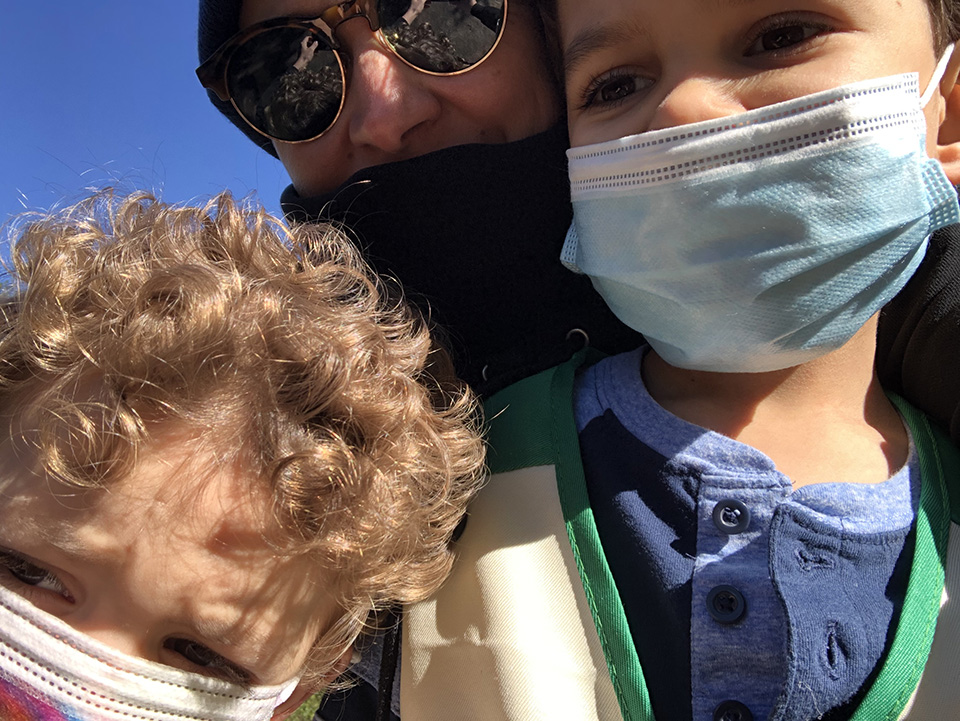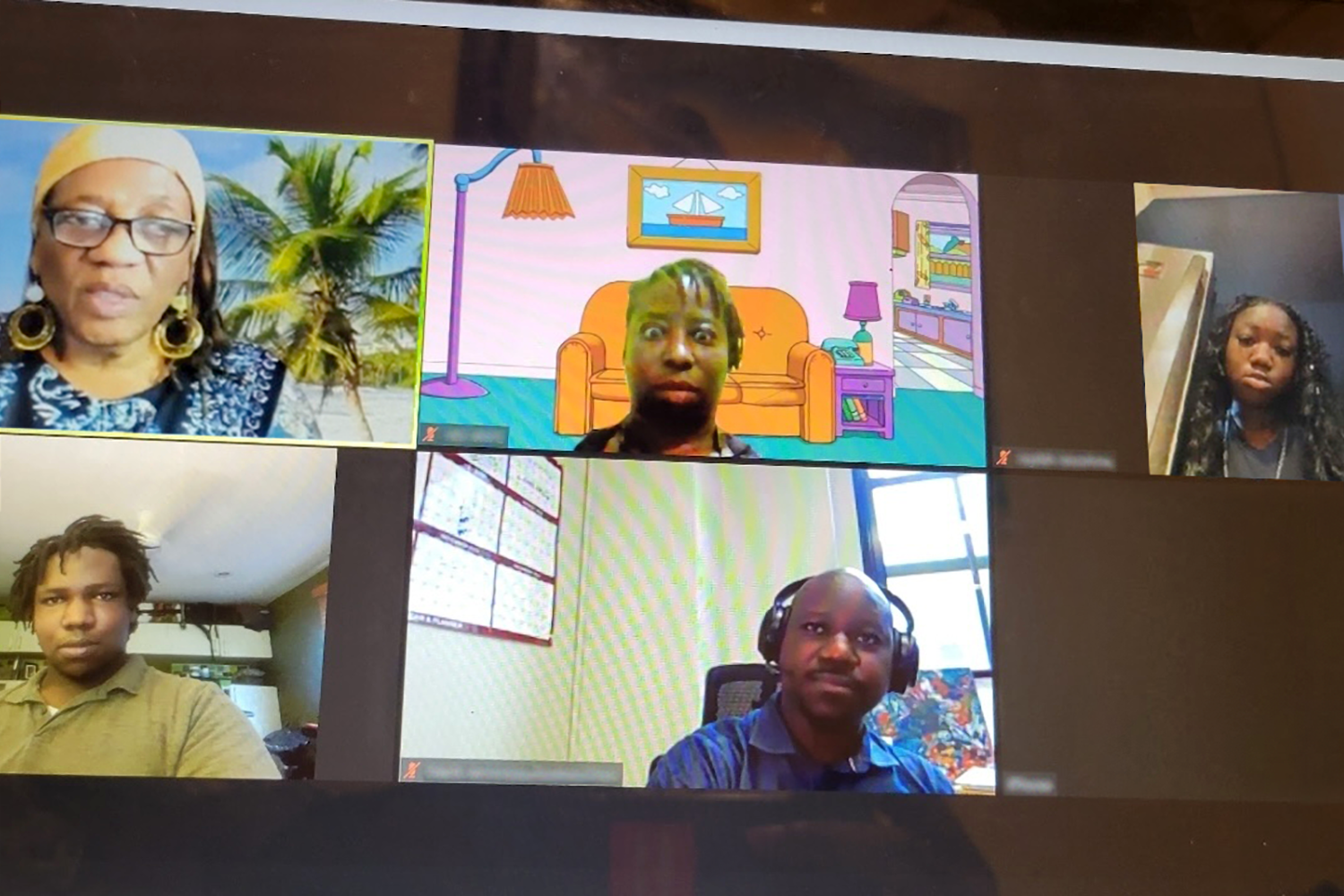
I learned how to do inner child work for my own anxiety — and ended up helping my actual kids
After years of therapy, there’s a point when you begin to recognize just how important language is to your overall mental health. The language you use while speaking to others and the language spoken to you is the key to understanding your triggers and, yes, your anxiety. It was in therapy that I learned how easily I was affected by seemingly casual criticism and the negative language of others. It wasn’t until I became a parent that I learned how this sensitivity would carry over to the language used around and about my kids.
Recently, I came across a set of old “incident reports” my eldest son had received from a Montessori school that threw me into a tailspin:
Throughout the day, Jameson has been having a hard time listening to the teacher and following directions. He says no for all routines such as cleaning up, changing of diaper, etc., and begins to cry.
— Montessori staff
Why the tailspin? My therapist and I have drawn connections between what I perceive as a trigger and what is actually happening in any given conversation. For example, when I was a teen, teachers told me that I was easily distracted and lacked motivation in school. I was bright, but couldn’t focus. They weren’t wrong, and — looking back — it makes sense that my steady diet of Twinkies and Diet Coke paired with an unstable home life led to my inability to focus. Because of therapy, I’ve learned that the way teachers spoke about my distractions in the classroom were in and of themselves causing my lack of motivation. Because of therapy, I was able to change my perception about my poor performance as an adolescent student. This reorientation helped with my self-esteem and lessened my anxiety around returning to finish a bachelor’s degree as an adult.
Therapy doesn’t just help you — it helps your kids
When my oldest son started attending the Montessori school, he was only 2 years old. He was fun, engaging, and not afraid of strangers or authority figures of any kind. My husband and I found it endearing then and still do today. After a year of regularly receiving incident reports, we decided to pull him from the Montessori school and find a new one. It sounds simple enough now, but at the time, I had to wade through a lot of emotions and triggers when facing the school administration at every drop-off and pick-up. I often left the school in tears because my son seemed to be an outlier in a roomful of perfectly well-behaved children. It took us a while, but we finally decided that if he wasn’t happy, he needed a change of schools and not more discipline that wasn’t working.
Jameson refuses to follow the teacher’s directions, and throws himself on the floor and screams very loudly.
— Montessori staff
I remember getting this report and thinking, “He does that at home, too. What’s the problem?” Nonetheless, I felt ashamed admitting this to the teachers and I fell apart in my car that day. “What is wrong with my kid? This behavior seems normal for him at 2 years old, what am I doing wrong?” Now I know, because of therapy, that I was internalizing these comments.
Today while playing outside Jameson was hiding behind some bushes and when Ms. Montessori asked him to come out, he then hit her and threw himself on the ground. Also, he kicked Mr. Montessori during work time.
— Montessori staff
When I talked to my therapist about the stack of incident reports that I had found, he didn’t commiserate with me. He didn’t affirm my meltdown of tears and anger. Instead, he asked me why I was triggered. What was it about the language those teachers used with my toddler that reminded me of my own experience in school? My answer to him was everything. I had teachers who expected me to perform at math, English, and history levels that I wasn’t prepared for. I needed a tutor and didn’t know how to ask for one. Seeing these reports reminded me how little my parents understood about what I was experiencing; likewise, I had no idea why Jameson’s behavior seemed so out of line in a room full of kids who were his age.
Today, Jameson had a difficult time following directions. During circle time (he) was disruptive by yelling and crying. When we ask him to clean up, he starts yelling “no.” When teachers try and talk to him, he purposely threw himself on the floor.
— Montessori staff
What the meltdowns were really about, his and mine
My child was two years old. He was miserable and probably should have stayed home with me another six months before we put him in daycare. The truth is that when we found him a new school, I stuffed the stack of incident reports in a drawer and didn’t look at them again. When I came across them again recently, I was triggered. I fell apart emotionally — again — because I never processed why I didn’t understand my child’s experience at that particular school. I agreed with the staff that we weren’t doing something at home that was causing him to be so disruptive. I sided with the teachers instead of looking at the complete meltdown my kid was experiencing when I dropped him off and recognizing this as a plea for change or help.

Parenting is so hard. It’s hard to parent when you’ve grown up in a stable middle-class home. It’s even harder when you’re not so lucky and try to do better for your kids. The only effective parenting I’ve found has come through taking the time to understand my own triggers and through connecting with my own inner child. Here’s a quick list of things I’ve learned about my triggers and my inner child that may help you find a little bit of peace on your parenting journey:
- If you think of your childhood self — your inner child — as a friend you love, what would you say to them if someone was offending them? When my actual child is being called out, I soothe my kid. But, I’ve also learned to soothe myself.
- When you find yourself coming across something that triggers you like a stack of bills, ask yourself why you put it off. Why did you stuff these feelings (not just the paperwork) in a drawer? What can you do about it now?
- Every inner child was once full of ideas, creativity, joy, and laughter. Part of the struggle of growing up and living into reality is that the inner child is often silenced. When someone catches me on a bad day, when my anxiety is particularly high, I’ve learned to talk to my inner child first. I make deals with her: “We’ll get you home and you can workout, write, play!” These are my go-to’s, I’m sure you have your own.
- If you feel like you’re on the verge of an anxiety-induced meltdown, find space to talk to your inner child. What do they need? How is the space that you’re in not serving them?
- Most importantly, love that kid! Whoever you were as a kid. Whether you were distracted, or you loved to throw yourself under tables and chairs when you didn’t get your way, love your kid-self. They were amazing!! And, if you convince yourself they still exist, it’s that much easier to walk yourself off a ledge.
A quick note, Jameson is now in kindergarten. He still throws himself under desks when he’s upset, but he’s doing just fine in spite of that. His teachers love him, and he has the sweetest friends. Because of therapy, I am also doing better. I recognize triggers and I give myself grace when I fail. And yes, I often talk to Olga Marie Rosales as a five-year-old kid, and we have fun! I wish you and your inner kid this much joy.
Sorry, the comment form is closed at this time.





Brisia Rodriguez
This is so true! Therapy definitely helps YOU, but also affects the others around you in a positive way!
Carrie
Thank you for being so vulnerable with your parenting challenges and feelings. I particularly love the note about the importance of reorientation. So many of the stories we hold close are not factual or at best could have multiple perspectives depending on our frame of reference.
Olga Salinas
Thank you for the comment Brisia! Everyone needs some amount of therapy ✅ I just wish it were free! Maybe one day.
Nicole
I loved this article! It’s so real and so relatable. Thank you for sharing the tips and I’ll definitely talk to my inner child more!!!